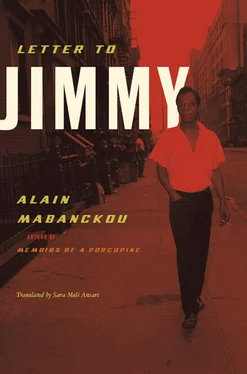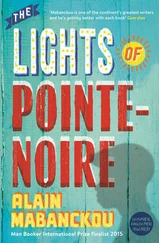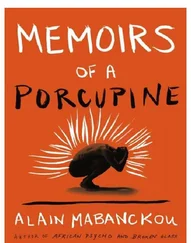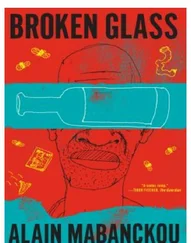Black Americans do not have a clear idea of Africa, but they do have certain ideas of Africa that situate them on one side of an unbreachable gap between myth and reality. There is the myth of their ancestors, torn from the continent; the reality is the battle they fight for acknowledgement and identity in their new homeland.

The uneasiness between Africans and black Americans is even more apparent when it comes to intellectual debate.
From the 19th to the 22nd of September 1956, the first literary congress of black writers and artists convenes at the Sorbonne in Paris, under the initiative of Alioune Diop, founder of the journal Présence Africaine . You are enlisted to cover the event for Preuves et Encounter, and you watch closely the birth of the Negritude movement by Aimé Césaire, Léon Gontran Damas and Léopold Sédar Senghor. Instead of drawing you closer to Africa, this encounter heightens your feeling of confusion. You consider the congress to be a true disappointment. The representatives of the Negritude movement are disconnected from reality, and when they express themselves — in France, in the French language, the language of their colonizers — their approach to the issues at hand is biased, in the sense that it is Franco-French leaning, and drowns the fundamental questions in theoretical posturing.
Negritude remains a vague and empty notion that seems separate from you. Certain African intellectuals — such as Manthia Diawara — do not attempt to hide their reservations on the subject. Diawara is not convinced that having a mutual “white adversary” creates a shared culture. And when Senghor, in a poetic speech, praises Richard Wright’s Black Boy, you realize that the Senegalese poet has not yet understood the scope of the total misunderstanding that characterizes relations between Africans and black Americans. Senghor’s interpretation of Black Boy in fact underlines Richard Wright’s African heritage. Yet what Richard Wright authored in truth was an American autobiography that one cannot comprehend outside of the context of his personal experience as a black man in America, and all of the struggle, repression, denial and displacement that entails. In reality, the African intellectuals’ takeover of this 1956 congress demonstrates their desire to appropriate the personal experiences of black Americans into the concept of Negritude in order to give the latter the appearance of being more open, of having a broader base. 95Your uneasiness with this surfaces when, three years after the congress, you would confide the following to the historian Harold Isaacs: “[Africans] hated America, were full of racial stories, held their attitudes largely on racial grounds. Politically, they knew very little about it. Whenever I was with an African, we would both be uneasy. . The terms of our life were so different, we almost needed a dictionary to talk.” 96
Your essay, “The Fire Next Time,” is published in 1963.
This text calls into question the structure of American society, which is deaf to the claims of minorities. In the same year, President John Fitzgerald Kennedy is assassinated as he begins his re-election campaign. This tragedy is a major blow to the progress of civil rights. Kennedy was fighting against racial segregation that was still common in some states, despite the 1954 Supreme Court ruling that outlawed it. He offered his support to Martin Luther King, Jr., and had received the leaders of the Civil Rights Movement in the White House.
During this time, concerned about not participating in the fate of your country, you leave France temporarily. You are not a simple spectator, and certainly not merely a witness to history. Your voice is now counted among those at the center of the black community. It is your duty, first as a citizen, but also as a writer, who is seen henceforth as the spokesman of the voiceless. You could have uttered as your own the potent words of Aimé Césaire upon returning to his own homeland:
“And behold here I am!”
“Once again this life hobbling before me, no, not this life — this death, this death without sense or pity, this death that falls pathetically short of greatness. .” 97
Published in the United States in January, The Fire Next Time immediately springs to the top of the bestseller list. Several months later, your rising star lands you on the cover of Time magazine. Your words are closely monitored, and, even before this time, the FBI had opened a file on you (the famous file 100146553). You are not unaware that the FBI is watching you. You discuss it with your friends and family, talking about it more and more, as you fear that one day you will fall victim to a conspiracy, and that your days will end in mystery, like Martin Luther King, Jr., or certain members of the Kennedy clan. The smallest of your movements and activities is carefully recorded, to the point of being ridiculous, if one remembers that national security is at stake. File 100146553, now consultable via Internet, contains for example details such as “The current residence of James Baldwin, the negro writer and playwright, is unknown. He had a romantic visit with Paul Robeson at the Americana Hotel. We report that Baldwin could be a homosexual; everything leads us to believe that he is.”
In 1963 you are racing against the clock.
You undertake a tour of the South, the heart of the “Negro Problem.” During this trip you do not hesitate to return to church, this time to preach another way of loving your neighbor — through tolerance, and the recognition of minority rights. You push the envelope so far as to call upon Robert Kennedy to respond to the police brutality with which a peaceful civil rights protest met in Birmingham, Alabama. Robert Kennedy invites you to speak with him along with other leaders of the black community. Could it have been any other way?
It is finally in August of 1963 that the famous March on Washington occurs. We hear Martin Luther King’s, Jr., unforgettable “I Have a Dream” speech.
Throughout the course of the march, you are in the crowd, not far from Marlon Brando.
•••
With “The Fire Next Time” you pen the most profound, political, and literary text on the subject of black freedom, future and status in America. Despite the initial thundering applause, voices of discord ring out shortly thereafter. Anticipating the fury about to be unleashed against you, Sheldon Binn notes in his review of your essay, “What he has drawn will not sit well even with some whites who count themselves as friends of the Negro. But he has not written this book of two essays to please. [. .] Thus he has written from a heart which has felt a unique kind of hurt and a brain which has desperately sought hope in the face of what often seems to be the merciless logic of despair.” 98
Because of the threatening tone of your essay, you are accused of stirring up tensions between both sides; furthermore, this book is seen as a partisan act, and your ideas are labeled as extremist. Albert Memmi, who would later write the preface to the French edition of your work, remains perplexed and wonders if you are not making the same demands that Black Muslims make but in more bellicose terms: doing away with whites to leave room for blacks. He asks, “Does Baldwin ask for anything else when he suggests, calmly and level-headedly, that America should cease to consider itself a white nation? Should we also admit after reading his book that we are more afraid than Baldwin himself?” 99
It is not a question of you pitting yourself against what many call, as your father used to, the “white devil.” You must defuse both sides, rethink integration: “What one would not like to see again is the consolidation of peoples on the basis of their color. [. .] Color is not a human or personal reality; it is a political reality. But this is a distinction so extremely hard to make that the West has not been able to make it yet. And at the center of this dreadful storm, this vast confusion, stand the black people of this nation, who must now share the fate of a nation who has never accepted them, to which they were brought in chains.” 100
Читать дальше













